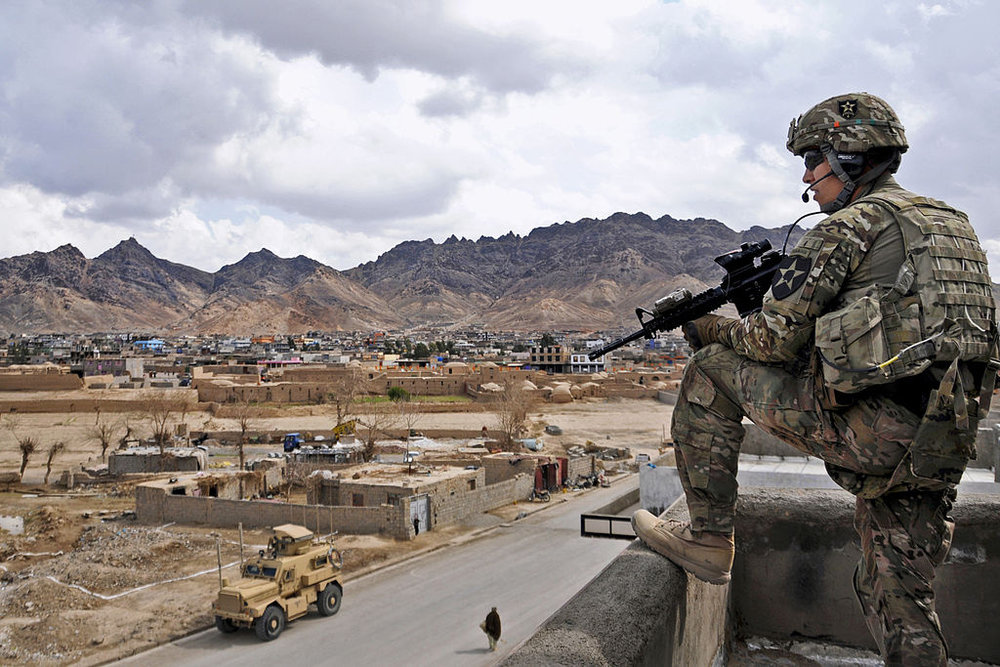The U.S. cannot abandon Afghanistan now

President trump’s evident frustration with the U.S. mission in Afghanistan is entirely understandable.
After nearly 16 years of war, the country is torn by violence and the government of President Ashraf Ghani remains weak. Taliban fighters are surging in a number of rural areas. Trump is right to ask whether a longer and deeper commitment of U.S. forces, proposed by the commanders on the ground and his national security adviser, would be wasted. He is also correct to believe there can be no strictly military victory. But when Trump weighs a long-overdue strategic plan for Afghanistan, perhaps as soon as Friday, we hope he will also see there are very real risks to conceding defeat. The United States should not abandon Afghanistan now.
Trump initially empowered Defense Secretary Jim Mattis to decide troop levels in Afghanistan and their objectives. The secretary has told Congress that the Taliban now controls or contests some 40 percent of Afghanistan, and that more U.S. troops and NATO forces would help block the militants’ momentum. As an interim step, American commanders in the country requested some 3,000 to 5,000 additional U.S. troops, but Mattis delayed sending them. The deployment question has become part of a long internal policy debate in which Trump seems caught between two arguments.
Some “America first” political advisers are telling him that adding troops is just a recipe for failed nation-building. They appeal to Trump’s visceral aversion to entanglements abroad, and an angry president reportedly suggested firing the current U.S. commander in Afghanistan at a recent meeting at the White House. But Trump is also hearing from the retired generals he has entrusted with key national security positions — including Mattis and White House national security adviser H.R. McMaster — that it would be a mistake to withdraw from Afghanistan completely.
He should listen to the generals. It is not an easy choice, but the goal of any strategy must be to build Afghan stability, not weaken it. Ghani’s government is fractured and facing popular discontent. Afghan security forces are losing ground. A U.S. pullout would accelerate the centrifugal forces already at work. Although Afghanistan has come far over the past decade and a half, a sudden withdrawal might send it spiraling downward toward the chaos of the 1990s, when it became a sanctuary for al-Qaeda and home base for the Taliban. This time, it could become a base for the Islamic State [ISIS], as well.
Trump should chose a strategy with a clear, limited goal: shore up the Afghan government, help it gain greater legitimacy and strengthen its security forces. The point is not some kind of flashy victory but avoiding a terrible defeat. Achieving stability in Afghanistan is worth a modest commitment of U.S. troops, Special Operations forces and air power. A major surge of the size that President Barack Obama approved early in his first term is not being discussed. The point is to show the Taliban that it can’t topple the central government, and coax the Taliban, if possible, toward negotiations. Maybe the Taliban will never agree, but a continued U.S. effort is preferable to Afghanistan falling apart.
(Source: The Washington Post)
Leave a Comment